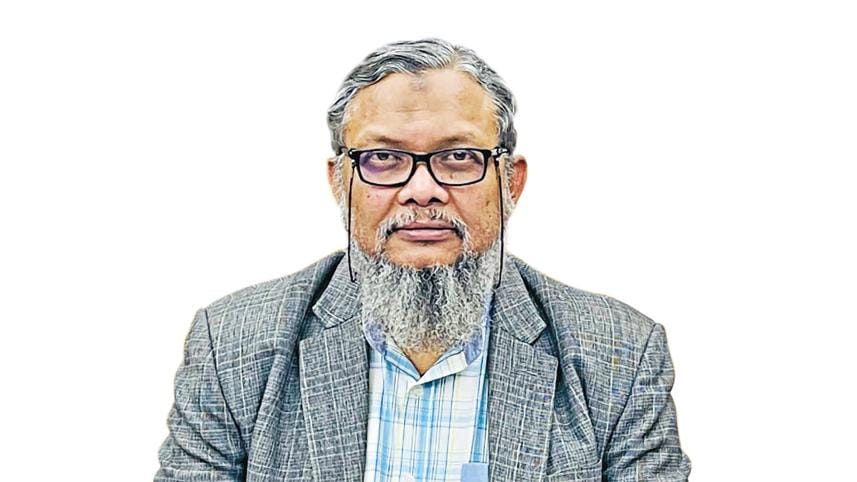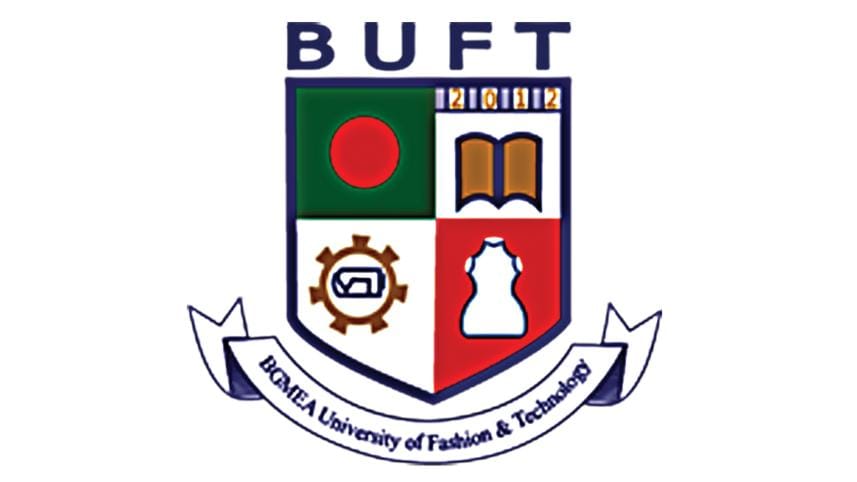Weaving the Textile Future of Bangladesh

Prof. Dr. Engr. Ayub Nabi Khan
Acting Vice Chancellor, BGMEA University of Fashion & Technology
The Daily Star (TDS): What makes your university the ideal choice for prospective students?
Ayub Nabi Khan (ANK): Our university is a specialised institution designed to meet the critical demands of the textile, Ready-Made Garments (RMG), and fashion industries. With a significant shortage of skilled professionals in areas like processing, industrial engineering, merchandising, quality control, and sustainability, our need-based curriculum fills these gaps. Unlike general academic programs, we focus on high-demand fields, ensuring our graduates are highly employable.
Another unique aspect of our university is our strict maintenance of quality education. To ensure better education and proper knowledge dissemination, we have highly qualified, foreign-educated teaching staff and an industry-aligned curriculum. We always strive to create manpower that will steer the helm of our industries.
By offering a unique, industry-focused education under one umbrella, we empower students with the skills and knowledge to thrive in both local and global job markets.

TDS: Please share details about the programs and courses tailored to equip students with the skills and knowledge necessary to excel in today's dynamic job market.
ANK: Our university offers industry-aligned programs in textile engineering, supply chain management, fashion, apparel technology, merchandising, industrial engineering, and computer science. With vast job opportunities in the RMG and textile sectors, our education addresses skills mismatches, preparing students for success. We focus on sustainability and CSR, with Circular Textiles introducing Bangladesh's first CSR-focused curriculum. Our graduates find opportunities in countries like Cambodia, Vietnam, Germany, Turkey, and the Middle East. With a high employability rate exceeding 90%, our programs equip students with the expertise to excel in local and global markets.
TDS: Could you tell us about the dynamics of your teaching staff?
ANK: We have a dedicated faculty team of over 250 members, catering to a student body of more than 6,000. This results in a teacher-student ratio of 1:24, slightly above the standard ratio of 1:20. We place great emphasis on the qualifications of our faculty, ensuring that we recruit individuals with a minimum CGPA of 3.5, typically in the range of 3.5 to 4.00, to maintain academic excellence. Furthermore, we prioritise candidates with relevant academic backgrounds and experience, including at least one year of teaching experience at the lecturer level or industrial expertise.
TDS: Can you tell us about the university's research facilities?
ANK: Our university is guided by a Board of Trustees of 21 textile industry owners, emphasizing practical skills for real-world challenges. We have 55 state-of-the-art laboratories across various disciplines, including textile, fashion, engineering, and computer science, equipped with modern tools for hands-on learning. The university continuously upgrades its equipment to stay ahead in technology. These labs foster innovation, supporting education and societal progress by addressing future challenges in 4IR Technology. Additionally, BUFT maintains academic and research partnerships with national and international organizations and universities, further enhancing our educational resources and opportunities.
TDS: How does the university nurture the inner potential of its students through extracurricular activities such as clubs, job fairs, and competitions?
ANK: With 22 student clubs across various fields—including textile, innovation, fashion, business, social science, and sports—students can develop their skills beyond academics. Each year, we host a job fair featuring over 300 companies, providing direct employment opportunities for graduates.
This year, BUFT organised one of the largest National Career Fests, creating significant job opportunities. Our debate club has won multiple national awards and recently hosted a competition with 64 universities and colleges. We also held a national entrepreneurship expo with 35 stalls from 15 universities.
BUFT students have excelled in international fashion design contests and won accolades like the National Film Award in fashion design. Many of our fashion designers, apparel technologists, and textile engineers hold leadership roles in multinational companies and major retail brands across Asia, Europe, and Bangladesh.
TDS: Could you provide an overview of tuition fees along with details of scholarships and waivers offered by the university and other initiatives, aimed at supporting students in achieving their academic goals?
ANK: We offer affordable tuition fees, ensuring that education is accessible to all. The Board of Trustees' financial aid, scholarships, and waivers are available for students, including those from disadvantaged groups, freedom fighters, employees' children, and female students. Accommodation is also available for female students. Additionally, the university hosts national debate competitions to encourage student engagement. With strong representation from rural students from regions like Rangpur, Dinajpur, Rajshahi, Cumilla, Netrokona, Sylhet, Mymensing, Noakhali, Feni, and Rangamati, the university is committed to making education accessible for all.



 For all latest news, follow The Daily Star's Google News channel.
For all latest news, follow The Daily Star's Google News channel.
Comments